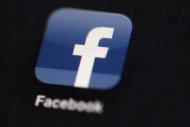
NEW YORK (AP) â€" Viewer excitement about the Olympics is translating into gold for NBC: The broadcaster now expects to break even on the London Games rather than taking a loss.
"We are way ahead of where we thought we'd be," NBCUniversal CEO Steve Burke said Wednesday.
Covering the Olympics was more challenging for NBC this year because of the time difference with Europe. With London five hours ahead of New York, NBC isn't able to show any events live in prime time. In Beijing four years ago, NBC was able to show morning events such as Michael Phelps' gold-medal swims live during its evening broadcasts.
But instead of the expected 20 percent ratings plunge compared with Beijing, Burke said, NBC is seeing audiences up 9 percent so far, five days into the event.
"We think that is because of the way we promoted the Olympics during the hundred days leading up to the Olympics," Burke said.
Tuesday's Olympics telecast, featuring Phelps' record-setting swim and the gold-medal performance of the U.S. women's gymnastics team, had the highest rating of any night so far, according to Nielsen's overnight measurement of the nation's largest cities. A broader viewership estimate was expected later Wednesday.
Combined with higher production costs in London, NBC had expected at one point to take a $200 million loss for the games. NBC paid $1.2 billion for the rights to show the games on TV and online in the U.S. Before the games opened, it said it sold more than $1 billion in ads, breaking the record of $850 million set during the Beijing Olympics in 2008.
Ahead of the London Games, NBC got 10 percent more for every minute of prime-time advertising compared with the Beijing Games. It also tripled its pre-sales of online ads to $60 million, as it's streaming all events live for the first time.
Better ratings could mean higher rates for ads sold at the last minute. They could also help the network, which is fourth overall in U.S. ratings, promote new shows in its fall lineup and boost viewership of non-sports programs such as "Today" and "NBC Nightly News" during the Olympics.
The Olympics run through Aug. 12.
Burke indicated that he expected to break even from a cash perspective, meaning the cost of the broadcast rights and the production will be balanced by ad sales and other direct revenue. He made the comments on a conference call with Wall Street analysts to discuss the second-quarter earnings report of Comcast Corp., NBCUniversal's parent company.
From a formal accounting perspective, the treatment of the Olympics is more complicated, as NBC made the deal with the International Olympic Committee before the Comcast bought the controlling stake in NBCUniversal early last year. Some of the loss was eliminated when Comcast absorbed NBCUniversal through what is known as purchase accounting. Comcast Chief Financial Officer Michael Angelakis said on the call that the end result would be that the company will post a small gain from the event in the current quarter.
NBC lost money on the 2010 Winter Games in Vancouver, but previous games were profitable, if not wildly so. It has broadcast every Summer Olympics since 1988.
Last year, NBC outbid Fox and ESPN to gain the rights for four more Olympics, paying $4.38 billion through 2020.











